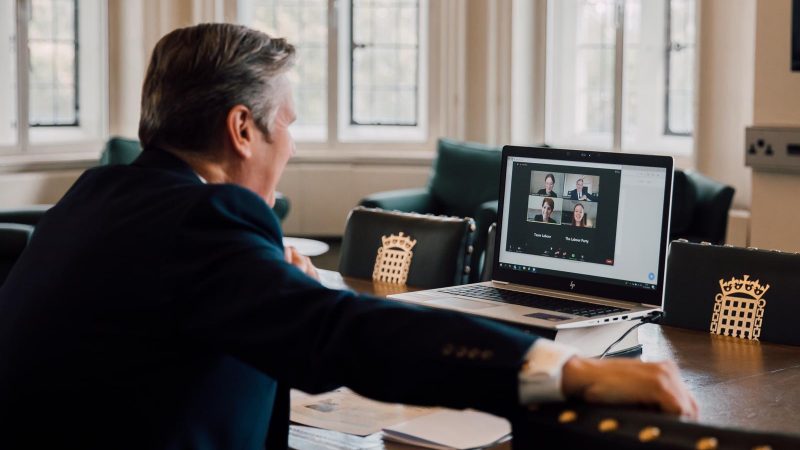
Keir Starmer has revealed in a ‘Call Keir’ session with Morecambe and Lancaster residents this afternoon that the coronavirus crisis has changed his view of directly-elected local and regional mayors.
Asked about a devolution deal not being secured so far for Lancashire, Starmer said: “One thing that comes through loud and clear in local communities is that sense of wanting to be heard and wanting to influence decisions.
“I think we should start with the principle that decisions about people should be made as close to people as they can. I have to admit I was a bit wary about local mayors, regional mayors, when the idea was first unfolding.
“I have to now accept that after the way that local mayors – Andy Burnham, Steve Rotherham, Joe Anderson in Liverpool – have been the powerful voice of their communities over the last few months, particularly in this pandemic, I think they’ve proved the worth of a voice on the ground.
“Local authority leaders have done the same. I actually think that those – Andy, Steve, Joe – standing up for the communities and being seen to stand up for their communities has been really empowering.
“I think lots of people would say actually that’s a good thing because those voices of the North West absolutely need to be heard. What they bring is that sense of completely understanding the communities they represent.
“For me, I think one of the challenges going forward, and one of the things an incoming Labour government would want to do in 2024, is take power and resources away from Westminster and Whitehall and put it closer to local communities as a matter of principle.”
Starmer agreed with one participant that Labour had recently been missing “aspiration”, said the party should make its support for businesses clear, and stressed the need to address regional inequality.
The Labour leader said: “The vision that we need at the moment is of a Britain that will get through this pandemic – and we will… Then I think the vision has to be not to go back to where we were before the pandemic but actually to go forward to a better Britain.
“Because I actually think that this pandemic has exposed a lot of the inequalities that were there, a lot of the fragile way in which we ran our economy. In one sense, I know people want to go back to normal.
“I think we owe it to them to have a better future than that, a more secure economy that is actually working across different regions of the country in a much, much better way.”
He added: “We need to put decision-making and resources closer to people on the ground in local communities. We need to be brave about that, an incoming Labour government needs to be brave about that.
“So the vision is of a much better Britain, and what I’m going to set out to describe in the next few months is what would Britain look like if Labour won in 2024.
“What would the difference be? Rather than slogans or broad statements, actually in practical terms how does it look different.”
Asked about how his party planned to vote on the new Covid restrictions in the House of Commons on Tuesday, the Labour leader said he had been talking to Chris Whitty and Patrick Vallance “in confidence throughout the process”.
Starmer said he would talk to the government medical advisers this afternoon ahead of the vote. He is worried that “we’re going to go round and round in circles” with lockdowns if the new system “isn’t better than the last one”, the leader said.
“I do think there are going to have to be restrictions,” he added, however. “We are not in the same place as some of those Conservative MPs who say ‘we don’t need restrictions’. We do need restrictions.
“I’m very conscious of the fact that however much I criticise the government’s approach… the Labour Party has to act in the national interest here.” It is understood that Labour will either vote for the new rules or abstain.




More from LabourList
‘Labour is being badly misled on housing’
Reeves bets on patience over populism
‘Energy efficiency changes must work for older private renters’